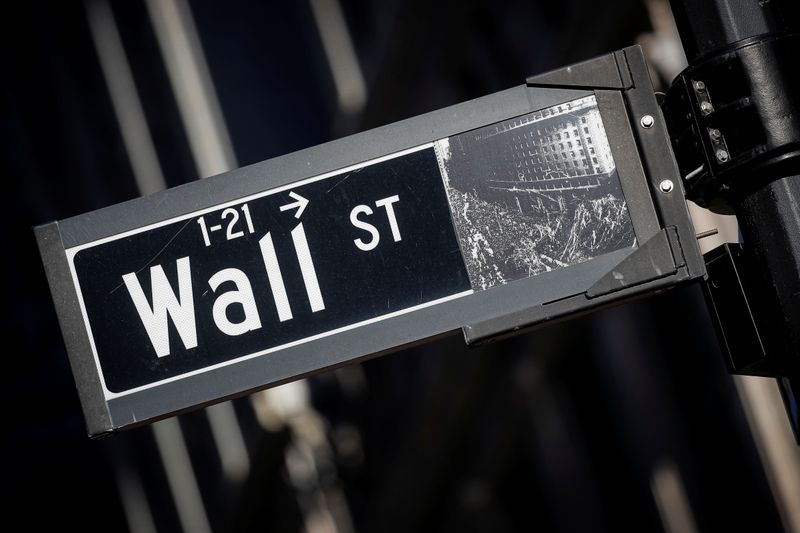By Geoffrey Smith
Investing.com -- U.S. stock markets opened mixed on Tuesday, unable to build immediately on Monday's momentum, which had allowed investors to claw back some of their losses on a bad opening month for 2022.
Evidence of sustained disruption to the economy and ongoing price pressures were enough to keep risk appetite within limits, especially for technology stocks, over which the series of interest rate increases this year still casts a long shadow.
By 9:45 AM ET (1445 GMT), the Dow Jones Industrial Average was unchanged at 35,131 points, while the S&P 500 was down 0.4% and the Nasdaq Composite, which rose over 3% on Monday, fell 0.4%.
There had been first signs that the Federal Reserve is starting to push back against expectations of aggressive interest rate hikes on Monday, with San Francisco Fed President Mary Daly saying that tightening should be "gradual and not disruptive." However, Daly is not a voting member of the Federal Open Market Committee, while more outspoken hawks such as St. Louis' James Bullard and Kansas City's Esther George are voting members. George on Monday stressed the contribution that the reversal of previous bond purchases could make to policy this year, but both indicated they had no problems with a first rate hike in March.
Talking to Bloomberg TV earlier, Philadelphia Fed President Patrick Harker refused to rule out that the first hike could be 50 basis points, rather than the 25bps that most expect. However, he said that would depend on the data between now and the March meeting. Tuesday's data did little to banish fears of a bigger hike, as job openings rose by more than expected to just short of their September record, while the Institute of Supply Management's manufacturing survey showed another leap in its prices subindex.
The market's changing preference for cash today rather than cash tomorrow was reinforced earlier by Exxon Mobil 's strongest quarterly results in seven years. The oil major swung back to a profit of just under $9 billion from a loss of some $20 billion a year earlier, thanks to rebounding prices for oil and gas that allowed its refineries and fields to run at higher utilization rates. It also started the $10 billion buyback program it flagged three months ago. Exxon Mobil (NYSE:XOM) stock rose 3.4% to its highest since early 2019.
For technology, by contrast, it was a case of selling the bounce. Tesla (NASDAQ:TSLA) stock fell 1.9% after announcing a modest recall of just over 50,000 vehicles due to safety concerns about its "Full Self Driving" software. Apple (NASDAQ:AAPL) stock fell 1.2% and Microsoft (NASDAQ:MSFT) stock fell 1.6%.
Elsewhere, United Parcel Service (NYSE:UPS) stock soared over 12% after reporting a strong fourth quarter that led it to raise its dividend and predict a solid rise in earnings this year. The read-across for the rest of the sector was seen as so positive that the news dragged up FedEx stock by 2.8%, even though FedEx (NYSE:FDX) announced it had been forced to suspend some domestic freight services due to Covid-related absenteeism. That comes only a day after studies suggested a new and more infectious subvariant of the Omicron Covid-19 virus had taken root in over half of U.S. states.
